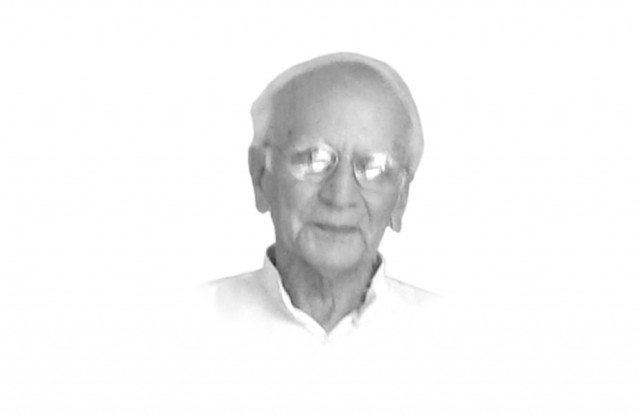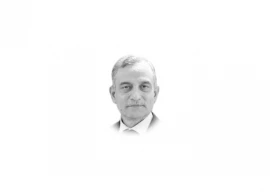
On October 28, 1958 commander-in-chief of the army, General Mohammad Ayub Khan, deposed President Iskander Mirza and assumed sovereign power over Pakistan as president and chief martial law administrator. In 1962, as a usurper of sovereignty, “I, Field Marshal Ayub Khan …” promulgated a constitution and got himself elected as sovereign through a pliant electoral college. The 1962 Constitution imposed a presidential system of government. The newly-created Doctrine of Necessity empowered the head of the military, to dismiss the government, dissolve parliament, retire judges and amend the constitution.
Ayub Khan’s constitution made the election process farcical. The cultural traditions of the people and the election laws coupled with the clout, influence and secret funds made possible for the Combine to make any person of its choice win or lose elections. The test came soon in the 1965 presidential elections. Miss Fatima Jinnah, a highly popular leader, decided to contest against Ayub Khan, the candidate of the Combine. Despite colossal vote-stealing, Ayub Khan won only by a questionable lead in West Pakistan, having lost in the more populous eastern wing. The election victory of the leader of the Combine in 1965 gave the Combine with a fig leaf of legitimacy which the international community recognised.
The new dispensation of the exercise of authority under the 1962 Constitution deprived the people of Pakistan of any possible share in governance. Their right to vote for an electoral college in the election process only enabled them to elect one out of several members of the ruling elite to a parliament of the ruling elite to serve the interests of the ruling elites. The media was muzzled. The structure of governance founded by Ayub Khan effectively silenced the voice of liberals and the Left.
The 17-day 1965 war with India, followed by a peace deal signed in 1966, brought bad news for the Combine. For four months the Combine had asserted, and people had believed it, that Pakistan had performed better than India in the war. The peace agreement at Tashkent came as a great shock to the people of Pakistan. By October 1968, the people had started to protest in the streets against Ayub Khan. They burnt down public transport, smashed traffic lights, and threw stones, while police responded by lathi-charges, teargas shelling and gunfire. Thousands were arrested and hundreds were killed in the encounters between the people and the military regime.
Faced with the prospects of a massive uprising in the country, the Combine assessed that it would be unable to quell, the Combine decided to change its leader. Ayub Khan abdicated and handed over the leadership to General Yahya Khan in March 1969, violating his hand-given constitution. The new leader announced general elections in order to give legitimacy to the rule of the combine. However, so great was the antagonism and hatred between the people and the State that the people completely thwarted General Yahya Khan’s Machiavellian scheme. The mass uprising of the people in East Pakistan, helped by Indian intervention, forced the civil and military forces of the Combine to abject surrender. The people of East Pakistan emerged as citizens of the new state of Bangladesh.
Following the 1971 war, the prestige and power of the Combine in the western wing evaporated in the cold December air. A mob in Peshawar burnt down the personal residence of General Yahya Khan as civil officers of the executive and police stood silently by Lt-General Gul Hassan and air force Chief Air Marshal Rahim — the leaders of the rebellion in the military against Yahya Khan and his coterie invited Zulfikar Ali Bhutto to head a new government.
Published in The Express Tribune, October 25th, 2010.








1731317620-0/Untitled-design-(9)1731317620-0-270x192.webp)




COMMENTS
Comments are moderated and generally will be posted if they are on-topic and not abusive.
For more information, please see our Comments FAQ